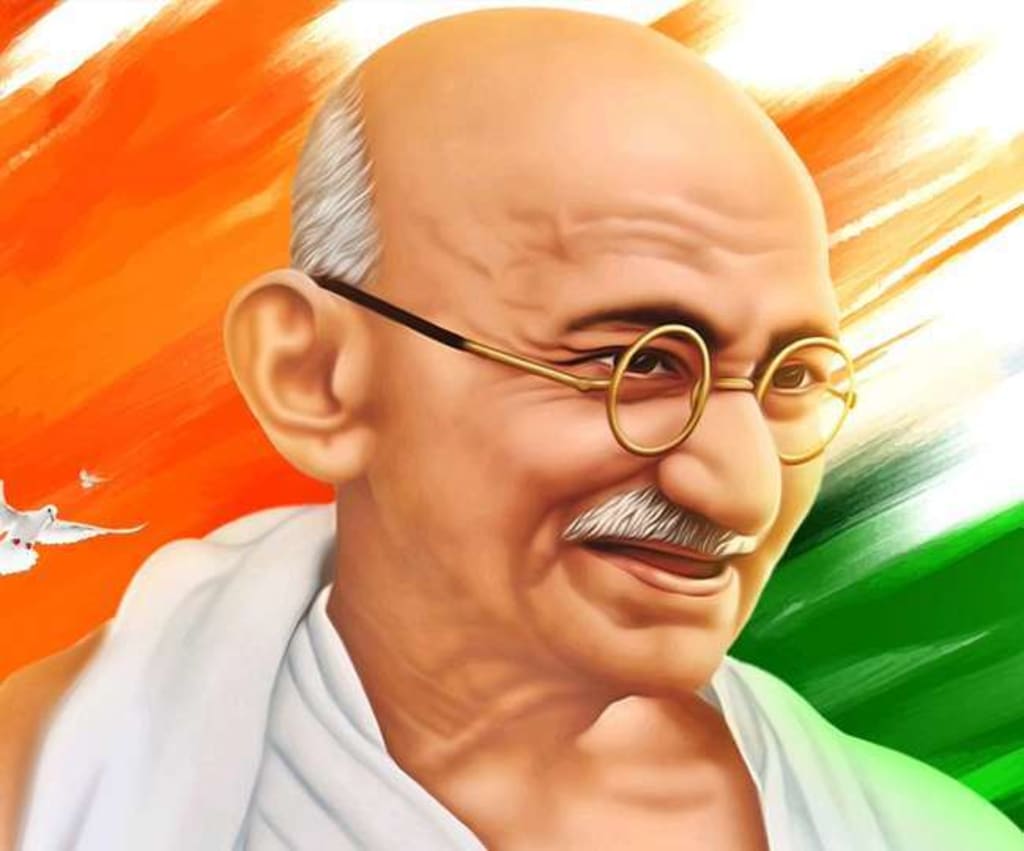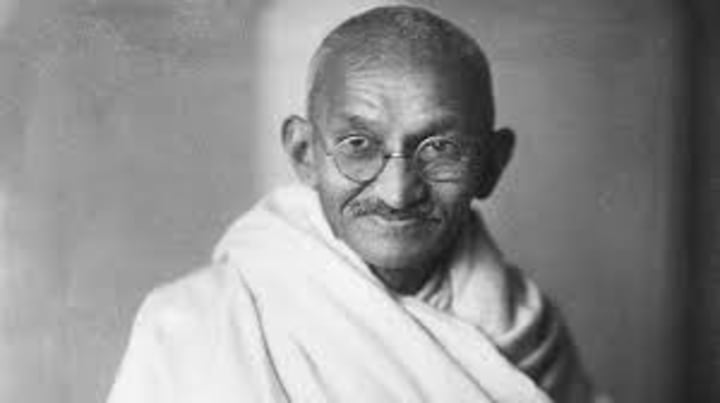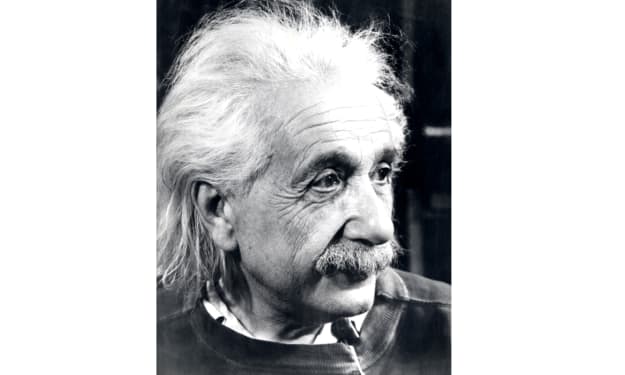Mahatma Gandhi: Father of India's Independence Movement
Exploring the Life and Legacy of a Nonviolent Revolutionary.

Mahatma Gandhi is one of the most revered figures in Indian history, and rightfully so. He is the man who led India to independence from British rule, and his philosophy of nonviolent resistance continues to inspire millions around the world. This article will delve into the life of Mahatma Gandhi, his philosophy, and his impact on India and the world.
Early Life and Education
Mahatma Gandhi was born on October 2, 1869, in Porbandar, a coastal town in present-day Gujarat, India. His father, Karamchand Gandhi, was the Diwan (chief minister) of Porbandar, and his mother, Putlibai, was a devout Hindu. Gandhi was the youngest of four children and was a shy and introverted child.
Gandhi was educated in Porbandar and later in Rajkot, another town in Gujarat. He was an average student but was interested in history and religion. After completing his schooling, he went to London to study law. While in London, Gandhi was exposed to Western culture and ideas, which challenged his traditional Hindu beliefs. He also experienced racism and discrimination while living in London, which would shape his views on social justice and equality.
Lawyer in South Africa
After completing his studies in London, Gandhi returned to India but struggled to establish a successful law practice. In 1893, he received an offer to work in South Africa, which would change the course of his life. Gandhi accepted the offer and moved to South Africa with his wife, Kasturbai, and their two children.
In South Africa, Gandhi experienced firsthand the discrimination faced by the Indian community. He was thrown off a train for refusing to move from a first-class compartment, despite having a valid ticket. This incident sparked Gandhi's activism, and he began organizing protests and campaigns against the discrimination faced by Indians in South Africa.
Gandhi's activism led to his arrest and imprisonment on several occasions. However, he continued to fight for the rights of Indians in South Africa and became a leading figure in the Indian community. He also developed his philosophy of Satyagraha (nonviolent resistance), which he would later use in India's independence struggle.
Return to India
In 1915, Gandhi returned to India and became involved in the Indian National Congress, a political party that was fighting for India's independence from British rule. Gandhi's philosophy of nonviolent resistance quickly became popular among Congress leaders, and he was soon appointed as the party's leader.

Gandhi's leadership of the Congress party was marked by several successful campaigns against British rule, including the noncooperation movement, the salt satyagraha, and the Quit India movement. Gandhi's philosophy of nonviolent resistance was instrumental in these campaigns, as it allowed the Indian people to protest peacefully without resorting to violence.
Gandhi's Impact on India and the World
Gandhi's impact on India and the world cannot be overstated. He is often referred to as the "Father of the Nation" in India, and his philosophy of nonviolent resistance has inspired countless movements around the world.
Gandhi's most significant impact on India was, of course, his role in the country's independence movement. His leadership of the Congress party and his philosophy of nonviolent resistance played a crucial role in India's eventual independence in 1947.
However, Gandhi's impact went far beyond India's independence struggle. His philosophy of nonviolent resistance inspired movements for civil rights and social justice around the world. Martin Luther King Jr. was one such figure who was inspired by Gandhi's philosophy and used it in the American civil rights movement.
Gandhi's influence can also be seen in the movements for independence in parts of the world, including Africa and Southeast Asia. Leaders like Nelson Mandela and Aung San Suu Kyi have cited Gandhi as an influence in their struggles for independence and democracy.
Gandhi's philosophy of nonviolent resistance was based on the principles of ahimsa (nonviolence) and satya (truth). He believed that violence only begets more violence and that true change could only come through peaceful means. Gandhi's philosophy was not only a political strategy but a way of life that he practiced in every aspect of his personal life, including his diet, clothing, and daily routines.
Gandhi's commitment to nonviolence and his unwavering principles inspired millions around the world. His philosophy of satyagraha became a powerful tool for social and political change, as it allowed individuals and communities to stand up against oppression and injustice without resorting to violence.
Despite his impact and influence, Gandhi was not without his critics. Some criticized his views on caste, religion, and women's rights, which were seen as outdated and regressive. Gandhi himself acknowledged his flaws and shortcomings, and he continued to evolve his views throughout his life.
Conclusion
Mahatma Gandhi was a towering figure in Indian and world history, and his impact on the world continues to this day. His philosophy of nonviolent resistance has inspired countless movements for social and political change, and his commitment to truth and nonviolence remains an inspiration to all who seek a more just and peaceful world.
Gandhi's life and legacy remind us of the power of individual action and the importance of standing up for what is right, even in the face of overwhelming odds. His message of love and compassion, and his unwavering commitment to justice, continue to inspire and guide us in our ongoing struggle for a more peaceful and just world.
About the Creator
Mahammad Azmal
Explore the lives of history's most influential figures on my channel! From scientists to leaders, discover the stories of famous individuals who shaped our world. Subscribe now!






Comments
Mahammad Azmal is not accepting comments at the moment
Want to show your support? Send them a one-off tip.